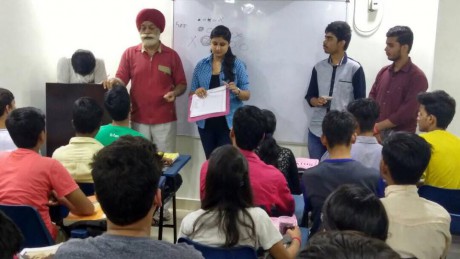CAT Exam Eligibility
- CAT authorities have declared to completely remove the minimum percentage criteria for the upcoming CAT 2022 (for candidates who complete their bachelor’s degrees in 2022.
- Candidates having backlogs in their graduation are also eligible to apply for CAT 2022 without any problem
- Having prior working experience before applying for CAT 2022 is NOT MANDATORY. However, candidates having working experience have an advantage over fresher candidates while getting evaluated at any of the IIMs for the selection process.
One must note that the eligibility criteria of CAT have not changed for the past several years, however, for CAT 2022, the authorities have made some major announcements regarding the academic eligibility for applicants.
Age Limit
As per the official CAT Eligibility details, there is no upper age limit to apply for CAT. Candidates who wish to apply for CAT 2022 must just check the other eligibility details ad there is no limitation on the age limit.
CAT Eligibility Criteria: Educational Qualification
As per the CAT 2022 exam eligibility criteria, candidates must hold a Bachelor’s Degree from a recognized
University. In the latest update, IIM A has removed the percentage criteria completely (for candidates who have
graduated in 2022, 2023). Students who received “promotion/pass” certificates instead of “award of marks”
certificates in any of the last two years of their bachelor's programme can select this option on the CAT 2022
application form. This waiver of eligibility also applies to final-year students who have received an “award” of
grades.
Degree awarded to candidates by institutes must be recognized by an act of Parliament or under section 3 of UGC
Act, 1965 or possess an equivalent qualification recognized by the MHRD.
Earlier, In order to be eligible for the CAT Exam, the candidate should have passed their Bachelors’ with at least
50% (for General Category and for candidates from the NC-OBC caste). The percentage requirement for SC/ST
and Differently Abled (DA) candidates is 45%. Students in their final year of graduation are also eligible.
If the University awards grades or CGPA instead of percentage, then CGPA will be converted to percentages and
grades will be converted by the respective processes approved by the individual institute or university. The
conversion factor given by the University has to be used. If there is no conversion factor specified by the
University, the CGPA has to be converted into percentage by direct conversion i.e. divide the CGPA received by
the highest CGPA possible and multiply the result by 100.












